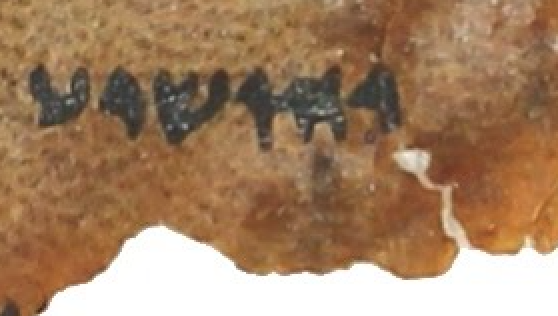
What is the true Hebrew meaning of Yahushua’s name? To answer this, we must begin at the foundation — in the Torah, Prophets, and Psalms. The name Yahushua (יהושוע), often misunderstood or dismissed, carries a prophetic weight that is rooted deeply in the ancient Hebrew Scriptures. It is not merely a name, but a declaration: YHWH is Salvation. This article explores how Yahushua reveals the salvation of YHWH in the Song of Moses, the Psalms, and the identity of the 144,000 in the Book of Revelation.
Shemoth (Exodus) 14:13 – Stand Still and See the Salvation of YaHuWaH
Hebrew:
וַיֹּאמֶר מֹשֶׁה אֶל־הָעָם אַל־תִּירָאוּ הִתְיַצְּבוּ וּרְאוּ אֶת־יְשׁוּעַת יְהוָה
Transliteration:
Vayomer Moshe el-ha’am, al-tira’u, hityatzvu u’re’u et yashuat YaHuWaH
English:
And Moses said to the people, “Do not fear. Stand still, and see the salvation (יְשׁוּעַת Yashuat) of YHWH…”
Moses announced the “salvation” (Yashuat) of YaHuWaH to the people. After crossing the Sea, we have the Song of Moses, the Song of the 144,000.
Shemoth (Exodus) 15:2 – The Song of Moses and the Name of Messiah Revealed:
Hebrew:
עָזִּי וְזִמְרָת יָהּ וַיְהִי־לִי לִישׁוּעָה
Transliteration:
Azzi v’zimrat Yah, vayehi li li-yeshuah
English:
“Yah is my strength and song, and He has become my salvation ישׁוּעָה (Yashuah).”
This verse is part of the Song of the Sea, sung after crossing the Red Sea. It directly links Yah (short for YaHuWaH) with yashuah (salvation), forming the root of the Name Yahushua — literally, “YHWH is salvation.”
YeshaYahu (Isaiah) 12:2 – The Prophets Confirm the Song
Hebrew:
הִנֵּה אֵל יְשׁוּעָתִי בָּטַחְתִּי וְלֹא אֶפְחָד כִּי עָזִּי וְזִמְרַת יָהּ יְהוָה וַיְהִי לִי לִישׁוּעָה
Transliteration:
Hinneh El yashuati, batachti v’lo efchad; ki azzi v’zimrat Yah YHWH, vayehi li li-yeshuah
English:
“Behold, El is my salvation (יְשׁוּעָתִי Yashuati); I will trust and not be afraid. For Yah, YHWH, is my strength and my song, and He has become my salvation.”
Here, the Name YHWH appears in full, not just as “Yah,” and the word for salvation (yeshuah) is repeated. This confirms that the etymology of Yahushua is grounded in Scripture: YHWH + Yeshuah.
Psalm 118:14 – The Messianic Hallel
Hebrew:
עָזִּי וְזִמְרַת יָהּ וַיְהִי־לִי לִישׁוּעָה
Transliteration:
Azzi v’zimrat Yah, vayehi li li-yashuah
This verse is part of the Hallel, sung during the feasts and pilgrimages. In this same chapter, we read:
“The stone the builders rejected has become the chief cornerstone.”
(Psalm 118:22)
This clearly refers to Messiah, who is not only the rejected stone, but the salvation of YaHuWaH. The repeated link between Yah and yashuah is undeniable.
The Name Yahushua: Full and Defective Spellings in Hebrew
After the Song of the Sea, Hoshea (הוֹשֵׁעַ) is renamed Yahushua (יְהוֹשֻׁעַ) in Numbers 13:16. In Deuteronomy 3:21, we find the full spelling of the Name: Yahushua (יְהוֹשׁוּעַ).
This is the original and prophetic form of the Name. It combines Yah (YHWH) with shua (salvation) — clearly reflecting the meaning found in Exodus, Isaiah, and Psalms.
This full spelling appears:
- Twice in the Masoretic Text
- In several places in the Dead Sea Scrolls
- In Paleo-Hebrew inscriptions
Supporting Names in Hebrew with -shua Ending
Names like these reinforce the grammatical validity of the –shua ending from the root יָשַׁע (yasha):
- אֲבִישׁוּעַ (Abishua) – “My father is salvation” (son of Phinehas the priest)
- אֱלִישׁוּעַ (Elishua) – “El is salvation” (son of David)
These names follow the same structure as Yahushua and support its linguistic integrity.
The 144,000 and the Song of Moses – Revelation Connection
In Revelation 14:1–5, the 144,000 stand with the Name of the Father written on their foreheads, and they sing a new song that only they can learn. Revelation 15 also references:
“The Song of Moses, the servant of Elohim, and the Song of the Lamb.”
This is a direct allusion to Exodus 15, tying the Name Yahushua to the end-time remnant and their testimony.
Yahushua is the Salvation (Yashuah) of YaHuWaH
The Name Yahushua (יְהוֹשׁוּעַ) is not a later invention or a mere variation. It is the prophetic fulfillment of the salvation revealed in:
Exodus 14:13 – “See the salvation of YHWH”
Exodus 15:2 – “Yah has become my salvation”
Isaiah 12:2 – “Yah YHWH has become my salvation”
Psalm 118:14 – “Yah is my strength and my salvation”
This is the Name given under heaven by which we must be saved (Acts 4:12). The Name of Yahushua declares the greatest truth of all:
YHWH is salvation.
The claim that Yahushua (יהושוע) is somehow connected to שׁוא (shav / shawa), meaning vanity or emptiness, is not only linguistically bankrupt, but it also borders on blasphemous insinuation against the Name of the Redeemer. False Association with שוא (shav / shawa): The word שׁוא (shin-waw-aleph), meaning vanity, falsehood, or emptiness, is not the same root as שוע (shin-waw-ayin), which appears in the Name יהושוע. These are entirely different Hebrew roots: שׁוּעַ / שׁוֹעַ (sho’a or shua) → from the root יָשַׁע (yasha) – to save or deliver שׁוא (shav) → falsehood, from a completely different etymology To claim that Yahushua contains “shav” is to butcher basic Hebrew morphology and to make a blasphemous accusation against the Sacred Name of YaHuWaH and the Name of his Son Yahushua. Let us delight ourselves in truth and the light.
For more information on Yahushua vs Yahusha click here.
